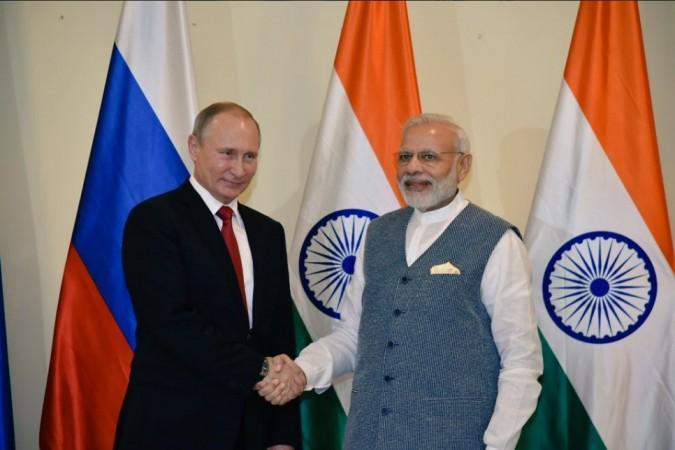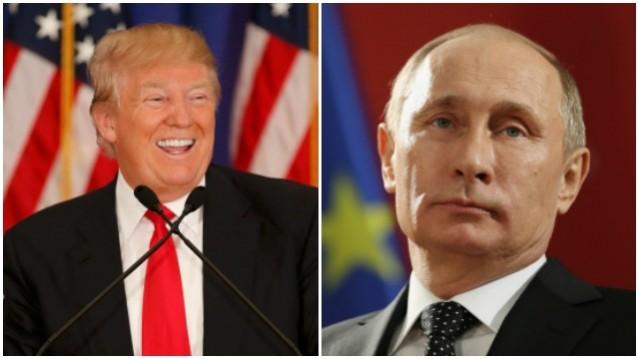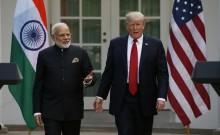
History shows Russia has been India's closest friend since independence. Though India had chosen the path of non-alignment as its foreign policy under Jawaharlal Nehru, critics had often criticised it as a satellite of sort of the erstwhile Soviet Union, backing it for ideological reasons. In the years of Indira Gandhi as well, it was the Soviets' help which India had needed to face the US-Pakistan-China axis.
But New Delhi's foreign policy started to witness a reorientation in the 1990s after the USSR collapsed. PV Narasimha Rao had started looking more to the West and the tradition was followed in the later years under his successors. However, it was Prime Minister Narendra Modi who had taken the relationship with the US to an entirely new level. And this had a big impact on the traditional India-Russia relations.
Also read: PM Modi visits Germany when US & Europe are drifting apart; for India, it's challenge & opportunity
Today, when a lot is being expected out of Modi's ongoing visit to Russia, we need to find an answer to the question whether the two countries still stand as traditional partners as they used to.
US a much bigger political partner than Russia for India
For one thing, India today requires the US more as a political partner than Russia. And Modi had given enough hint of that in 2015 when he invited the then US president Barack Obama as the chief guest to India's Republic Day celebrations. It was something unprecedented and Modi tried to give the world, including India's allies, the message that by befriending the US, it was getting ready to conduct its foreign policy from a position of strength. Even Russia's superior position vis-a-vis India was neutralised by that one move made by Modi.
Russia, which is in a mode of resurgence under Vladimir Putin, also did not lose sight of the emerging equations in international politics. Though it is not as economically powerful but the retreat of the US from its traditional adventurist posture in regions across the world gave Russia an opportunity to fill in the vacuum.
Russia has its own world ambitions today
Today, the Russians are eager to challenge the Americans in various regions like West Asia and Central Asia, Europe and even in Afghanistan. It has even drawn closer to Pakistan and China to serve its own geopolitical interests.

Russia's latest stances in international politics have been facilitated by other parallel developments like growing divide between the US and Pakistan; intense contest between the US and China and the ever-growing camaraderie between Pakistan and China. Given Russia's need for geopolitical engagement with both Islamabad and Beijing, it is unlikely to expect Putin to readily back New Delhi as his predecessors had done in the Cold War period.
The Kremlin is unlikely to unconditionally back India today
The BRICS summit held in Goa in October 2016 confirmed that as well. On that occasion, Russia left India disappointed by not backing its terror card despite the fact that the BRICs countries have pledged to tirelessly pursue terrorists as designated by the Un Security Council.
Russia did so keeping in mind the Sino-Pakistani bonhomie as enraging them would hit its own global ambitions of taking on the US and the Nato and also its own flirtation with the Pakistani military in September last year in the name of anti-terror exercise.
Unlike in the days of Nehru and Indira, the strategic interests of countries have undergone so much transformation today that expecting an all-white India-Russia alliance today is a sort of day-dreaming. There will be odd economic and military cooperation here and there but aligning the strategic interests with Moscow with its own is a difficult proposition for New Delhi.
Russia backs Taliban; another concern for India today
Another concern for India as far as its relation with Russia is concerned is the latter's warm relationship with the Taliban in Afghanistan and this plan of the Kremlin to cause the US forces problem in Afghanistan invariably brings Pakistan – which backs the Taliban – to a close proximity with Russia.
Actors in international relations have become more assertive in their individual capacity that there is no set pattern for cooperation and conflict today, unlike the camp war in the Cold war era. In these circumstances, foreign policy returns best when followed on a one-to-one basis rather than in a collective. India needs to see its relation with Russia through the prism of the changing realities and not expect unconditional support as it used to prior to 1991.













